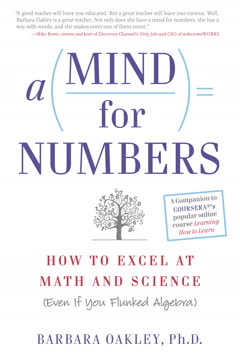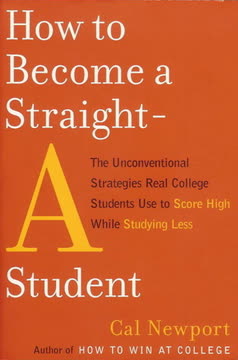つの重要なポイント
1. 学術効率をマスターする:学習習慣を優先し最適化する
すべての読書をしないこと。
選択的読書。 割り当てられた読書の中で最も重要な部分に焦点を当てる。序論、結論、主要なセクションをざっと読み、すべての言葉を読むのではなく、核心的な概念を理解することに集中する。これにより、効率的に多くの資料をカバーし、重要な概念に集中できる。
効果的な学習技術。 「クイズとリコール」法を利用し、50分の学習と10分の休憩を繰り返し、試験の2週間前から学習を始める。これらの技術は記憶の最適化と最後の詰め込みを防ぐのに役立つ。また、レビュー戦略にポイント値を使用したり、視覚的な知識マップを作成したりするなど、自分に合った個別の学習システムを構築する。
時間管理。 タスクを優先し、自由時間をスケジュールし、日々のTo-Doリストを避けて時間ブロックを使用する。このアプローチは集中力を維持し、学業と個人の時間のバランスを確保するのに役立つ。
2. 学術コミュニティと深く関わる
教授と友達になる。
関係を築く。 定期的にオフィスアワーに参加し、思慮深い質問をし、授業内容を超えた議論に参加する。これにより、教授との意味のあるつながりが生まれ、研究の機会、推薦、メンターシップにつながる可能性がある。
積極的に参加する。 毎回の講義で少なくとも1つの質問をし、ゲスト講義に参加し、専攻の学科に関与する。これらの行動はあなたの関与を示し、同級生の中で目立つのに役立つ。
研究への関与。 たとえ雑用から始めることになっても、できるだけ早く研究の機会を探す。この経験は、より重要なプロジェクトや分野での貴重な経験につながる。
3. バランスの取れた健康的なライフスタイルを育む
週に5日運動する。
身体の健康。 一貫した運動習慣を維持し、理想的には週に3日運動し、他の2日間は有酸素運動を行う。定期的な運動はエネルギー、精神の明晰さ、全体的な健康を向上させる。
精神の健康。 定期的にキャンパス生活から離れるために、書店を訪れたり自然散策をしたりする。これにより、視点を維持し、ストレスを軽減する。また、毎日笑う時間を作り、気分を高めストレスを軽減する。
栄養と睡眠。 週の間は健康的な食事をし、週末には柔軟性を持たせる。最適な睡眠時間を見つけ、それを一貫して守り、過剰な睡眠や不足を避ける。
4. 強力な文章力とコミュニケーションスキルを育成する
ピューリッツァー賞を目指すように書く。
継続的な改善。 授業外でも定期的に書くこと。キャンパスの出版物、個人的なプロジェクト、課外活動などで書く。この練習はスキルを磨き、独自の声を発展させるのに役立つ。
質に焦点を当てる。 すべての文章課題に対して、名誉ある賞を競うかのように取り組む。構造、スタイル、明確さに注意を払い、内容だけでなく、これにより文章の質が向上し、執筆プロセスがより魅力的になる。
多様なコミュニケーション。 キャンパス新聞にオピニオン記事を掲載し、パブリックスピーキングを練習し、会話で効果的に聞くことを学ぶ。これらのスキルは、アイデアを表現し、他者と意味のある関わりを持つ能力を高める。
5. 野心的な目標とプロジェクトを追求する
常に「大プロジェクト」に取り組む。
大きな夢を持つ。 最も心からの願望を特定し、これらの目標に向かって進むプロジェクトを設計する。これには、脚本の執筆、スタートアップの立ち上げ、独自の研究の実施が含まれる。
柔軟なアプローチ。 目標を設定し、それを達成するための複数のルートを探る。新しい機会が生じたり、最初の試みが失敗したりした場合には、進路を調整することにオープンである。
リーダーシップの役割。 クラブの会長になるか、自分の組織を立ち上げる。これらの経験は貴重なリーダーシップスキルを提供し、大学コミュニティで目立つのに役立つ。
6. 強力なプロフェッショナル基盤を築く
できるだけ早く研究に飛び込む。
早期の関与。 1年生のうちに興味のある分野での研究機会を探す。これにより、実践的な経験が得られ、教員との関係が築かれる。
戦略的な仕事選び。 夏休みやパートタイムの仕事では、専攻分野やキャリアの志向に関連するポジションを優先する。これには、インターンシップ、研究助手、自分で作成したポジションが含まれる。
スキルの開発。 データ分析、プログラミング、技術的な執筆など、選んだ分野で価値のあるスキルの構築に焦点を当てる。これらのスキルは将来の機会に対して競争力を高める。
7. 個人的な成長と自己改善を維持する
野心を膨らませる。
継続的な学習。 大学生活の早い段階で挑戦的なコースを受講し、アートヒストリーや天文学などの快適ゾーン外の科目にも挑戦する。これにより、知識の基盤が広がり、知的に挑戦される。
自己反省。 進捗状況を記録するジャーナルを保持し、達成したことを追跡し、自分自身に責任を持たせる。定期的に目標を評価し、必要に応じて戦略を調整する。
インスピレーションを求める。 高い成果を上げている仲間とつながり、彼らの経験から学ぶ。ゲスト講義や政治集会に参加し、多様な視点やアイデアに触れる。
8. 社会生活と人間関係を賢くナビゲートする
友達を最優先にする。
社会生活と学業のバランス。 友情を築き維持することを優先し、過度なパーティーや飲酒を避ける。これにより、学業の進行が妨げられることを防ぐ。
つながりを維持する。 家からの友達と連絡を取り合いながら、大学で新しい関係を築く。このサポートネットワークは、感情的な健康と視点を維持するのに重要である。
コミュニティへの関与。 ボランティア活動に静かに参加し、外部からの認識よりも内面的な報酬に焦点を当てる。これにより、目的意識とコミュニティへのつながりが育まれる。
最終更新日:
FAQ
What's "How to Win at College" about?
- Overview: "How to Win at College" by Cal Newport is a guide that offers unconventional strategies for achieving success in college.
- Focus: The book emphasizes balancing academic excellence with a fulfilling social life, aiming to prepare students for life beyond college.
- Approach: It provides 75 rules derived from interviews with top students across the country, focusing on habits, systems, and mindsets.
- Goal: The book aims to help students make the most of their college years by becoming standout individuals both academically and socially.
Why should I read "How to Win at College"?
- Unique Strategies: The book offers surprising and unconventional advice that goes beyond typical college success tips.
- Real-World Examples: It includes insights from successful students who have excelled in various fields, providing practical examples.
- Holistic Success: Newport emphasizes achieving a balance between academic success and personal growth, making it relevant for well-rounded development.
- Preparation for Future: The strategies are designed to not only help in college but also to prepare students for future career and life challenges.
What are the key takeaways of "How to Win at College"?
- Balance is Key: Success in college involves balancing academics with social life and personal projects.
- Start Early: Begin long-term projects the day they are assigned to avoid last-minute stress.
- Be Selective: Focus on excelling in one or two areas rather than spreading yourself too thin.
- Build Relationships: Befriend professors and get involved in research early to open up opportunities.
What are the best quotes from "How to Win at College" and what do they mean?
- "Don't have no regrets": This quote emphasizes living with a sense of excitement and possibility, valuing experiences over outcomes.
- "Start fast, end slow": Encourages beginning projects early to reduce stress and improve quality.
- "Make friends your #1 priority": Highlights the importance of maintaining strong social connections for emotional support and happiness.
- "Care about your grades, ignore your G.P.A.": Focuses on learning and understanding rather than obsessing over numerical grades.
How does Cal Newport suggest balancing academics and social life?
- Sunday Ritual: Create a Sunday ritual to set the tone for a productive week, balancing work and relaxation.
- Schedule Free Time: Plan your free time to ensure you have moments to relax without guilt.
- Involvement: Get involved in extracurricular activities early to build a social network and find balance.
- Prioritize Friendships: Make time for friends daily, as they are crucial for emotional support and happiness.
What is the "Quiz-and-Recall Method" mentioned in "How to Win at College"?
- Active Recall: Focus on actively recalling information rather than passively reviewing notes.
- Create Quizzes: Develop quizzes for yourself on the material you need to learn, ensuring you can answer without notes.
- Two-Step Process: First, review all material and create quizzes; second, quiz yourself until you can answer confidently.
- Engage Emotionally: Use emotion and energy, like pacing or speaking out loud, to reinforce memory retention.
Why does Cal Newport advise against daily to-do lists in "How to Win at College"?
- Unpredictable Schedules: College schedules are too unpredictable for rigid daily to-do lists to be effective.
- Time Blocking: Instead, use time blocking to allocate specific hours for tasks, allowing flexibility.
- Visualize Free Time: By visualizing your schedule, you can better manage your time and reduce stress.
- Adaptability: This method allows for quick adjustments when unexpected events occur, maintaining productivity.
How does "How to Win at College" suggest handling long-term projects?
- Start Immediately: Begin working on long-term projects the day they are assigned to avoid procrastination.
- Break into Chunks: Divide the project into manageable tasks and set arbitrary deadlines to maintain progress.
- Consistent Work: Use a work-progress journal to track daily accomplishments and hold yourself accountable.
- Avoid Last-Minute Rush: By starting early, you reduce stress and improve the quality of your work.
What is the significance of "Befriend a Professor" in "How to Win at College"?
- Mentorship: Professors can provide mentorship, guidance, and opportunities for academic and career advancement.
- Office Hours: Regularly attend office hours to build rapport and seek advice beyond class-related issues.
- Recommendations: A strong relationship with a professor can lead to valuable recommendations and introductions.
- Academic Success: Professors can help you navigate academic challenges and open doors to research opportunities.
How does Cal Newport recommend using summers in "How to Win at College"?
- Plan Early: Start planning your summer in January to secure interesting and relevant opportunities.
- Work or Intern: Find a job or internship related to your field of interest to gain experience and skills.
- Personal Projects: Use the summer to work on personal projects or develop talents with a structured plan.
- Maximize Experience: Treat summer as a time to explore interests and build a standout résumé.
What does "Inflate Your Ambition" mean in "How to Win at College"?
- Set High Goals: Encourage yourself to pursue ambitious goals that push your potential.
- Stand Out: Aim for projects that make you a standout, such as leading initiatives or creating original work.
- Challenge Norms: Look for ways to exceed expectations in your current commitments.
- Continuous Growth: Constantly seek opportunities for growth and development, both academically and personally.
How does "How to Win at College" address the importance of study environments?
- Library Focus: Emphasizes studying in the library to minimize distractions and enhance concentration.
- Secret Study Space: Find a personal, quiet study space for intense focus during major assignments.
- Avoid Dorm Rooms: Dorm rooms are filled with distractions and are not conducive to effective studying.
- Environment Matters: The right study environment can significantly impact productivity and learning efficiency.
レビュー
本書『How to Win at College』は、主に肯定的な評価を受けており、読者はその簡潔で実践的な学生向けアドバイスを高く評価している。多くの人がそのヒントを有用だと感じたが、中にはそれが明白であったり、すべての状況に適用できないと感じる人もいた。読者はニューポートの学業、社会生活、個人的成長のバランスを重視する点を評価している。一部の人々は、本書が過度に競争的な心構えを促進していると批判した。総じて、レビューアーは本書を大学生にとって有益なガイドとして推奨しており、多くの人がもっと早く読んでおけばよかったと感じている。
Similar Books






















